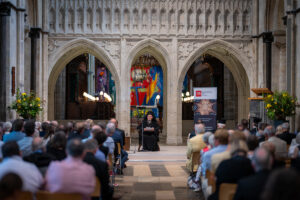The Iranian government is stepping up its persecution of Christians, in violation of the fact that its constitution guarantees Christians the right to representation in the Iranian Parliament, the right to produce non-halal food, and more. Despite this, Christians in Iran not infrequently suffer expropriation of their property, the forced closure of churches, and other forms of persecution.
Most of the roughly 300,000 Christians in Iran are members of the Armenian Apostolic Church, an ancient Church that broke off communion with Holy Orthodoxy after the fourth ecumenical council, the Council of Chalcedon in 451. Other Christians in Iran are members of the Assyrian Church of the East, the Chaldean Catholic Church, and the Roman Catholic Church; there is also a growing number of Pentecostals, Evangelicals, and other Protestants.
For previous ChristianPersecution.com coverage of Iran, see here.
“House-church leader loses appeal as seven other Christians await verdict,” Article 18, June 2, 2022:
An appeal court has upheld a 10-year prison sentence for a house-church leader issued by a notorious judge.
Anooshavan Avedian, an Iranian-Armenian Christian, faces 10 years in prison for teaching Christianity, or what Judge Iman Afshari called “propaganda contrary to and disturbing to the holy religion of Islam”. He was sentenced in April alongside two of the members of his house-church, Abbas Soori, 45, and Maryam Mohammadi, 46, who are both converts to Christianity.
Despite repeated requests by Anooshavan’s lawyer, Iman Soleimani, for the appeal hearing to take place in person, the ruling was made in absentia.
In the verdict, which was communicated to Mr Soleimani on Sunday 29 May, Judge Abbasali Hozan of Branch 36 of Tehran’s appeal court upheld Anooshavan’s 10-year sentence, as well as the subsequent 10 years’ “deprivation of social rights” after his release, meaning that the type of employment he will be able to have upon release will be restricted.
However, Abbas and Maryam’s own 10-year deprivation of social deprivation was removed and their fines for being in possession of satellite receivers reduced from 50m tomans ($2,000) to 6m tomans ($190) each.
According to Mr Soleimani, at least seven folders including around 600 pages of documents each had to be thoroughly studied, and an extensive defence bill detailing numerous legal challenges considered before the ruling could be passed. Therefore, the lawyer argued that the fact that the verdict was issued in less than 10 days “demonstrates insufficient study of the case by the appeal judges, dismissal of the defence, and unjust process”.
Mr Soleimani added that as Anooshavan was not permitted to have a lawyer in his initial trial at the Revolutionary Court, he was unable to defend himself adequately against the volume of accusations built up against him by interrogators.
All three Christians had appealed against the initial verdict, which had been issued by Judge Afshari at the 26th Branch of the Revolutionary Court of Tehran on 11 April.
The judge, who is also head of intelligence at the court, is known for issuing some of the harshest sentences against Christians, including in the case of Fariba Dalir, a 51-year-old Christian woman convert who recently began a two-year prison sentence as a result of a conviction on similar charges….
Iran is number nine on Open Doors’ World Watch List, an annual ranking of the 50 countries where Christians face the most extreme persecution.







